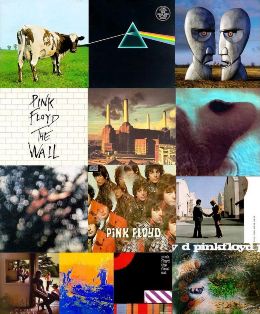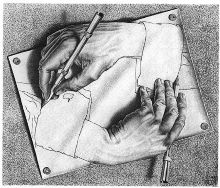Ebook readers and announcements of titles are multiplying. After at least 15 years of false starts, this time it looks like ebooks are going to take over, driven by products like Amazon Kindle ebook reader.
When I was a book publisher I used to go to the Frankfurt Buchmesse. It was around 1993 when there were big announcements about “The Year of the E-book” (it was spelled with a hyphen then), which would soon replace paper books.
The ground floor of the book fair was dedicated to ebooks, but publishers didn’t really rush to convert their titles into a digital format. At that time, as a young publisher of computer science books, I blamed the conservative nature of the traditional publishing industry and experimented with digital formats. As it happened with other digital publishers, the market didn’t answer positively. So I blamed the conservative nature of the reader instead and kept publishing paper books, which were successful.
There were more waves of the craze for ebooks, a bigger one a few years later. We tried to believe in that second wave as well, but even this time there wasn’t much interest. In the meanwhile the Internet came into our lives and I noticed, starting from the US, that something was changing in the traditional book publishing industry.
Books were becoming smaller and the writing style more journalistic. Some publisher colleagues told me that “the reader doesn’t have much time any more to read complicated and big books, as they are used to Web pages,” or that “the writing style should be more catchy and entertaining.”
I won’t blame the Internet for this per se, but for sure it represented the low point of the prolongued attention capacity, already weakened by fast TV edits, by the remote control and the number of available channels and overall by the information overload industry.
The new generations of ebook readers improved much on readability and it seems that this new wave is the one which is finally about to grow in popularity. The thing is, it won’t be the same thing about books any more. Even though ebooks won’t substitute paper books, they will get an important share of the traditional book market, which will probably reduce – as we have already seen about the traditional newspaper market.
But…things just change and we shouldn’t be afraid of that, right? We shouldn’t be overly attached to the traditional media but be open to technological advances, as the techno-enthusiasts (and the ones who have direct economic interests in it) tell us.
True, but it could anyway be interesting to know what’s going to change in our inner reading experience through ebook technology. Ebooks will probably set different standards about length and writing style, and much time won’t pass before they will “open” to links and to connecting with other people who read the same book, making the reading experience more social and shared. Maybe videos will be available when the ebook readers technology will improve. Advertisement will come too. Ebook readers and publishers are going to compete for developing more and more features, “enhancing” the experience.
Wonderful, but some things give their best with less instead of more. For instance, organic food is healthier because there are no preservatives, no chemicals, no GMO, no colorants.
Ebooks won’t make books extinct: they will just eclipse the inner experience of reading books, in spite of what tech people say that supports don’t matter. What are usually taken into consideration are the technical issues around clarity of the screen, available memory, and the facility of reading in different light conditions. But since many technologically-oriented people don’t give much attention to the subtle inner changes, for many of them it’s probably the same. What matters for them is what we can do, not what is being done on us by technology.
Being alone with a book, electronic or paper or whatever, with no Internet, no links, no videos, no electronics and nothing and nobody else popping up on the screen while we read, will probably become rare, but it is that very solitude which can give non-interrupted mutual feedback between the words, as the semantic bricks of our awareness, and the depths of the soul.
I lettori di ebooks e gli annunci di nuovi titoli digitali si stanno moltiplicando. Dopo almeno 15 anni di false partenze, sembra arrivato il momento in cui gli ebook prenderanno il sopravvento, grazie a nuovi ebook reader come Amazon Kindle.
Quando ero un editore di libri, andavo alla fiera del libro di Frankfurt ogni anno. Era il 1993 o giù di lì quando a grandi titoli veniva annunciato “L’anno dell’E-book” (all’epoca si usava ancora il trattino), che presto avrebbe sostituito i libri cartacei.
Il piano terra della fiera era dedicato agli ebook, ma gli editori non si precipitavano a convertire i loro titoli nel formato digitale. All’epoca, in quanto giovane editore di libri di informatica, criticavo il conservatorismo delle case editrici tradizionali e facevo esperimenti con il formato digitale. Come avvenne per altri editori digitali, il mercato non rispose positivamente. Quindi, criticai il conservatorismo del lettore e tornai a pubblicare libri cartacei, che invece ebbero successo.
Ci furono altre ondate di interesse per gli ebook, una delle principali pochi anni dopo. Provammo a credere anche in quella seconda ondata, ma l’interesse fu nuovamente scarso. Nel frattempo, Internet era entrata nella nostra vita e mi accorsi che qualcosa, a partire dagli Stati Uniti, stava cambiando nel mondo dell’editoria tradizionale.
I libri stavano diventando sempre più piccoli, mentre lo stile di scrittura diventava sempre più giornalistico. Alcuni colleghi editori mi dissero che “il lettore non ha più molto tempo per leggere libri grandi o complicati, perché si è abituato alle pagine Web”, oppure che “lo stile di scrittura dovrebbe essere più accattivante e divertente”.
Di questo non do la colpa a Internet, ma di certo essa rappresenta il punto più basso nella capacità di attenzione prolungata. Capacità di attentione che era già stata messa a dura prova dai veloci edit della TV, dal telecomando, dalla sovrabbondanza di canali disponibili e di notizie fornite dall’industria dell’informazione.
Le nuove generazioni di ebook reader hanno fatto molti progressi dal punto di vista della leggibilità; tutto lascia supporre che questa ondata sia quella che porterà all’affermazione degli ebook. Ma il punto è che per i libri le cose non saranno più le stesse. Anche se gli ebook non sostituiranno i libri cartacei, conquisteranno una quota importante del mercato dei libri, il quale probabilmente si contrarrà, come abbiamo già visto per il mercato dei quotidiani tradizionali.
Ma… le cose cambiano e noi non dovremmo temere il cambiamento, vero? Non dovremmo restare attaccati ai media tradizionali, ma essere aperti ai progressi della tecnologia, come ci dicono i tecno-entustiasti (e coloro che hanno in materia un diretto interesse economico).
Tutto ciò è vero, ma potrebbe comunque essere interessante sapere cosa cambierà nell’esperienza interiore della lettura, tramite la tecnologia degli ebook. Gli ebook probabilmente imporranno standard diversi riguardo la lunghezza e lo stile di scrittura, e non passerà molto tempo prima che si “aprano” a link e alle possibilità di comunicazione con persone che stanno leggendo lo stesso libro, facendo dell’esperienza della lettura un fatto più sociale e condiviso.
Magari saranno disponibili anche i video quando la tecnologia degli ebook reader lo consentirà. Arriverà pure la pubblicità. I lettori di ebook e gli editori competeranno per aumentare le attrattive del prodotto, “migliorando” l’esperienza.
Splendido, ma certe cose danno il meglio di sé con meno, anziché con più. Per esempio, il cibo biologico è più sano perché non ci sono conservanti, sostanze chimiche, OGM, coloranti.
Gli ebook non provocheranno l’estinzione dei libri; essi eclisseranno semplicemente l’esperienza interiore della lettura, anche se i tecno-entusiasti sostengono che il supporto non cambia l’esperienza. Gli elementi più presi in considerazione sono quelli tecnologici, ovvero la chiarezza dello schermo, la memoria disponibile, la facilità di lettura nelle diverse condizioni di luce.
Ma poiché molti tecno-entusiasti non danno importanza ai sottili mutamenti interiori, tutto il resto, per loro, probabilmente non farà differenza. Per i tecno-entusiasti, quello che conta è ciò che possiamo fare, non ciò che ci viene fatto dalla tecnologia.
Il trovarsi da soli con un libro – elettronico, cartaceo o di altro tipo – senza Internet, link, video, elettronica, senza niente e nessuno che spunta dallo schermo mentre leggiamo, diventerà probabilmente un’esperienza rara, ma è proprio quella solitudine che può creare un ininterrotto feedback tra le parole, in quanto mattoni semantici della nostra consapevolezza, e le profondità dell’anima.




